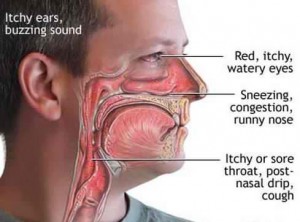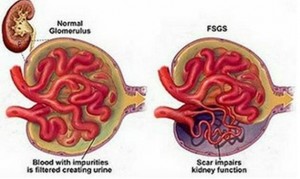Itchy Throat – Remedies, Symptoms, Causes, Treatment
What is Itchy Throat?
Itchy throat is a phenomenon where there is an irritating sensation in the throat that may sometimes be accompanied by coughing as a means to clear the throat. An itchy throat is also called as sore throat or strep throat.
Causes of sore throat include infection, inflammation, allergy, malignancy, trauma and obstruction in the airway. Most of the cases of sore throat are mild and can be managed by remedies. Some may be caused by serious illnesses that need medical attention.
Itchy throat sometimes do not occur as a single symptom. Most often, associated symptoms occur such as:
- Difficulty in swallowing
- Hoarseness or difficulty speaking
- Pain
- Presence of secretions
- Itchy eyes
- Runny nose
Some cases of infection that lead to sore throat are accompanied by fever and flu-like symptoms.
Throat Anatomy
The throat is composed of two areas: the pharynx and larynx
The pharynx is the space located just below the oral cavity before the opening of the esophagus. The pharynx is divided into three parts:
- Nasopharynx– The nasopharynx is the space at the back of the nasal cavity. It receives the air from the nose.
- Oropharynx– The oropharynx is the space at the back of the oral cavity which receives food before it enters the esophagus.
- Laryngopharyx – The laryngopharynx is the space between the epiglottis and the esophagus. It is the entrance toward the larynx.
The larynx is the voice box, which vibrates to enable us to speak. It is just above the opening of the trachea. This is the reason that coughing is a symptom of an itchy throat because the trachea (wind pipe) is also irritated.
To prevent food from entering the larynx into the lungs, the epiglottis covers the voice box during swallowing.
Itchy throat both affects the pharynx and the larynx giving rise to the symptoms discussed earlier.
Symptoms of Itchy Throat
The walls of the throat are lined by mucous membrane responsible for protecting the throat from irritating and foreign substances. It contains nerves that stimulate the body to cough whenever it becomes irritated. It also contains mucus-producing cells that secrete a sticky substance to trap any microorganisms and prevent it from entering the lungs.
Itchy Throat Causes
A number of conditions lead to an itchy throat. They include the following:
1. Dry Throat
Dry mucous membranes cause an irritating sensation in the throat. Common reasons for a dry throat are: cold weather, mouth breathing due to clogged nose, dehydration, smoking, alcohol intake, medication intake (antidepressants, anticholinergics, antihistamine, barbiturates, diuretics, opium and sprays), too much caffeine and illnesses such as Sjögren’s syndrome (causes dry mouth).
2. Foreign Body in the Throat
Presence of fish bone or food particles in the throat causes irritation and coughing.
3. Overuse of Voice
Prolonged speaking, shouting or singing gives tension to the voice box and pharynx leading to itchy throat. Resting the voice is the most effective treatment.
4. Toxic Substances
Pollution, factory smoke, laboratory chemicals, volatile substances, paint, cigarette smoke and cocaine irritates the mucosal lining of the throat causing itchiness and other symptoms. Toxic black mold, a fungus that thrives on wet surroundings such as the bathroom also irritates the throat.
5. Throat Infection
Certain infections affect the throat and cause itchiness and inflammation. Infections can arise from bacterial, viral and fungal infection.
Viral infections include colds, flu, mumps, measles, chicken pox, infectious mononucleosis, bird flu and herpes simplex type 1 (oral herpes).
Bacterial infections that may cause itchy throat are diptheria, streptococcal infection, chronic pharyngitis, croup, epiglotitis, tonsillitis and peritonsilar abscess.
Fungal infections, on the other hand, include Candidiasis or oral thrush and mucormycosis (fungal infection of the throat caused by a mold found in bread)
7. Illnesses on the Adjacent Structures
Any infection or condition arising from near organs can also affect the throat. These diseases include, but are not limited to sinusitis, ozena (chronic inflammation of the nasal cavity caused by Klebsiella bacteria), dental infection, bronchitis, pneumonia and tuberculosis. Pericarditis, the inflammation of the outer covering of the heart, may compress nerves that innervate the throat leading to irritation. In addition, a disease that causes an abnormal secretion of the exocrine glands, called Cystic fibrosis, also irritates the throat because of excessive production of mucus.
8. Allergy
Allergies to food, drugs and environmental allergies also cause an itchy throat. Associated symptoms include runny nose, watery and itchy eyes and sometimes difficulty of breathing and wheezing.
9. Systemic diseases
Diseases that include rheumatoid arthritis, systemic lupus erythematosus, Sjögren’s syndrome, vasculitis and sclerosis may also affect the tissues in the throat causing itchiness and inflammation.
10. Disorders in the Neck and Throat Tumors/Cancer
Growth in the pharynx, larynx and neck gives pressure on nerve endings that sends signal to the central nervous system to stimulate the person to cough. An enlarged thyroid also leads similar symptoms.
11. Stomach Acid Irritation
As a result of vomiting or acid reflux, the throat becomes irritated by the acidic juices that make the throat itchy.
12. Procedures involving the Throat
Endotracheal intubation and endoscopy causes the flexible tubes to irritate the lining of the throat. Local anesthesia is used during endoscopic examinations to numb the area and prevent coughing while the scope is being inserted.
Diagnosis
Diagnosis of itchy throat begins with a medical history to assess any predisposing factors. Local manifestations in the throat are also examined to determine the underlying cause such as checking the tonsils for swelling and enlargement. Further diagnostic procedures may be done which include the following:
Throat Culture and Sensitivity Testing
When infection is suspected, throat culture is done to determine the causative microorganism.
Complete Blood Count
Blood tests are done to determine specific infections such as infectious mononucleosis. Mono-spot is a specific test for the said disease.
Skin Patch Testing
This is done when allergy is suspected, which is done by placing small amounts of allergens in the skin and checking for local allergic reactions.
Intensive Studies
When serious illnesses such as tumor are suspected, series of imaging tests such as X-ray, CT scans, nuclear scans and MRI are done. Biopsy may also be required to determine malignancy.
Most often, an itchy throat is a mild condition which does not need further tests and exams. However, if recurrent throat irritation and inflammation is experienced, then a medical work-up should be done to determine any underlying cause.
Itchy Throat Treatment
Treatment for itchy throat depends on the underlying cause and other factors determined by the physician. Management for itchy throat itself focuses on relieving the symptom.
Palliative managements for itchy throat include:
- Lozenges. Lozenges contain anesthetics and anti-inflammatory drugs to soothe and relieve sore throat.
- Anti-inflammatory Medications – Medications such as ibuprofen are given to reduce pain and inflammation in the throat.
- Antihistamines – Diphenhydramine, cetirizine and other antihistamines are prescribed for allergic reactions.
- Corticosteroids – Corticosteroids are sometimes given for chronic sore throat. This reduces inflammation and allergic reactions to certain substances. Steroid therapy should only be used in intensive cases of sore throat because it causes several side-effects.
- Antibiotics – Bacterial infection in the throat needs to be treated with antibiotics to eradicate the causative microorganisms.
- Antitussives – Antitussives are medications that suppress cough in cases of dry cough. Antitussives should not be given to patients with productive cough because coughing suppression leads to accumulation of pulmonary secretions.
Home Remedies for Itchy Throat
Home remedies for itchy throat do not treat the underlying cause, but soothes the throat and reduce irritation and itching.
Home remedies for itchy throat include:
- Drink liberal amounts of water to flush the throat. Have readily available bottle of water to hydrate the area.
- Gargle with lukewarm water with salt to relieve pain and itchiness. This has been the most common remedy for a sore throat.
- Try herbal teas mixed with honey. Honey has been proven to provide soothing action in the throat. Teas that contain licorice, honeysuckle, eucalyptus, chamomile, slippery elm and marshmallow root also help in reducing itchiness.
- Drink ginger decoction. Boil ginger in three cups of water and drink the solution when warm. Commercially prepared ginger powder may also be used.
- Drink warm milk with turmeric. Prepare one glass of milk with one teaspoon turmeric and drink it before going to bed. Turmeric and milk have soothing effect to the throat.
- Prepare warm lemon juice. This remedy is also a popular treatment for sore throat.
- Avoid pollutant and allergens.
- Avoid mouth breathing and do not overuse your voice.
- Use indoor humidifiers to moisten the air.
- Use steam vaporizers. Hot steam moistens the air passage and also unclogs nasal passages.
Home remedies are effective in managing mild cases of sore throat. Itchy throat caused by underlying diseases should be managed promptly with prescribed treatments.

